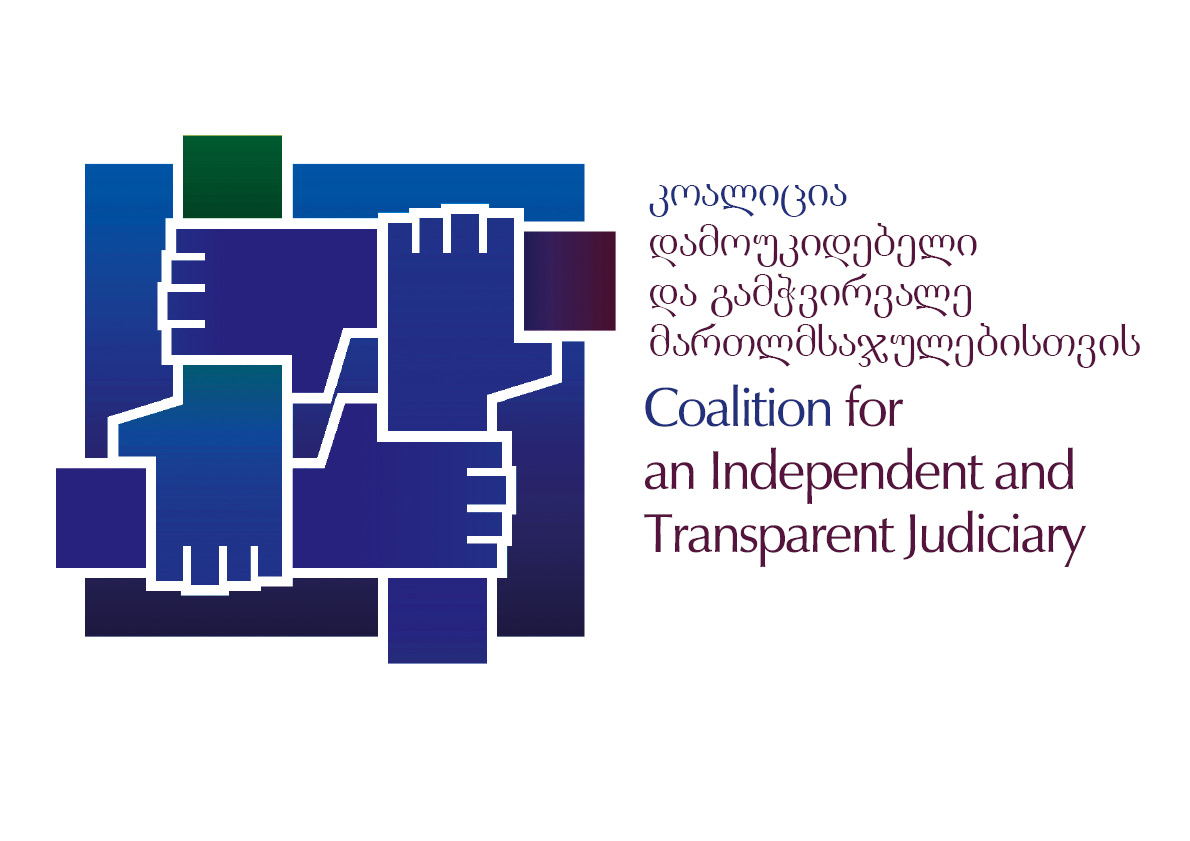NEWS

On May 10, 2019 the High Council of Justice (HCOJ) started the process of selection of Supreme Court judicial candidacies to be submitted to the Parliament of Georgia. The procedure has revealed several significant problems undermining transparency and legitimacy of the process, more specifically:
Conflicts of interest in the High Council of Justice
The Organic Law of Georgia on Common Courts and the Law of Georgia on Conflict of Interest and Corruption oblige the Council members to disclose a conflict of interest and refrain from participating in decision-making concerning judicial candidates.
The list of Supreme Court applicants includes Zurab Aznaurashvili, who has familial connections to Tamar Oniani, a HCOJ member (he is her brother-in-law). Another applicant, an acting judge, Levan Tevzadze, is the brother-in-law of Irakli Shengelia, a HCOJ member. The HCOJ members did not disclose this obvious conflict of interest. They did not distance themselves from the process and participated in the first secret ballot, as a result of which, the first selection was conducted and 50 applicants out of the pool of 137 moved to the second stage. The two applicants mentioned above ended up on the list.
Participation of an unauthorized Council member in the selection process
Zaza Kharebava, a non-judge member of the Council, is participating in the process of selection of Supreme Court justices. Zaza Kharebava’s candidacy was submitted to the Parliament by an unauthorized entity. This is a significant violation of the Parliament Rules of Procedure and the Organic Law of Georgia on Common Courts, and a ground for terminating Zaza Kharebava’s authority. On May 14, 2019, the Coalition addressed the Speaker of the Parliament with a letter calling for an examination of the legitimacy of Zaza Kharebava’s election. Despite the significance of this issue, the Parliament has not discussed it until now.
The Council staff managed by an applicant for the Supreme Court
Giorgi Mikautadze, the Council Secretary, is one of the applicants for the Supreme Court. Giorgi Mikautadze is not facilitating the Council meetings dedicated to the process. However, he is maintaining the position of HCOJ Secretary and, correspondingly, he is managing the HCOJ staff. The latter are responsible for collecting and checking information on Supreme Court applicants. Hence, Giorgi Mikautadze is maintaining levers for influencing the process of selection of Supreme Court judicial candidates.
Distribution of HCOJ members’ votes at the first secret ballot
On June 20, 2019, the Council conducted the first secret ballot to shortlist applicants for the second stage of selection of Supreme Court judicial candidates. The first secret ballot practically confirmed doubts expressed by the Coalition during Committee hearings of the amendments to the Organic Law on Common Courts. More specifically, while observing the voting, we established that the ballots were marked similarly and the level of coincidence was high. It is obvious that if individual Council members had voted independently, without preliminary communicating (agreeing) on candidates, considering the secrecy of the ballot, such an exact coincidence of votes for selected candidates was practically impossible.
Refusal to issue information on candidates
On May 31, 2019, Transparency International Georgia, a member of the Coalition, requested copies of applications and supporting documentation submitted to the Council by applicants to be considered for 20 judicial vacancies in the Supreme Court. The Council refused to issue this information, citing the requirement to protect personal data. The Organic Law of Georgia on Common Courts clearly establishes that an applicant participating in the competition for the selection of Supreme Court justices agrees to have information related to him/her, including his/her personal data, “searched/checked and passed to the Parliament/published.” Despite the clarity of this provision, the HCOJ interpreted it incorrectly. According to the Council’s interpretation, an applicant agrees to disclose information related to him/her (including personal information) only to the Parliament and not to the public.
The Council agreed to provide access to documents submitted by candidates only after representatives of the Public Defender’s and Personal Data Protection Inspector’s offices clearly expressed their opinion on the importance of releasing this information to the public at the Council meeting held on July 12, 2019.
Considering the unprecedented number of Supreme Court justices elected for the first time in history, the importance of the Supreme Court and high public interest, it is vital to ensure the openness and transparency of the selection process, and avoid question marks that can undermine the legitimacy of selected candidates in the future.
The Coalition calls on:
- The HCOJ to ensure full transparency of interviews with candidates, to provide adequate time for interviews that would allow the Council members to ask all the questions that will inform the public about the candidates’ past, professional experiences, and values;
- Giorgi Mikautadze, HCOJ Secretary, to leave the position of Council Secretary or to withdraw his candidacy from the competition for the selection of Supreme Court candidates;
- Tamar Oniani and Irakli Shengelia, HCOJ members, to refrain from participation in the process of selection of Supreme Court judicial candidates;
- The Parliament of Georgia to timely consider the issue of termination of the authority of Zaza Kharebava, a HCOJ member.
SHARE: